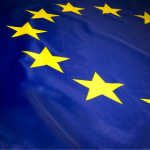How Europe should regulate Big Tech, according to experts

- Experts call for changes in the EU’s regulation plan, including a shift from one-size-fits-all to platform-specific codes of conduct
- A report by the University of Surrey offers a series of policy options on the proposed digital markets and services Acts
- With different platforms having different business models and operating in different sectors, custom-made specific codes of conduct are the way to go
Today, all of the so-called ‘Big Tech’ companies are digital platforms, and they rank among the most valuable firms in the world. The combined market capitalization of Google parent Alphabet, Amazon, Apple, and Facebook alone exceeds US$5.7 trillion as of December 2020. Tech giants play an increasingly central role in daily life and in the economy, operating as digital intermediaries between interconnected markets.
In recent years, firms have grown to an unprecedented scale, propelled by data-driven business models. We are in fact in an era where online platforms have a massive impact on individual users and businesses and are recasting the relationships between customers, advertisers, workers, and employers. Such an evolution has triggered a public debate on the role of online platforms in causing economic ripples and patterns of pervasive data collection.
Hence, a growing number of people around the world see an increased need for more government regulation of big technology companies, following headlines in recent years that keep reporting on privacy concerns and data security breaches. The European Commission published its draft Digital Services Act and Digital Markets Act in December, for debate and discussion in the coming months. The British government is expected to publish its Online Safety Bill this year, following what is known as its online harms consultation.
Meanwhile, in the United States, the Biden administration is taking office amid a slew of calls to regulate Big Tech from all points of the political spectrum. There is a shared concern at the influence of private individuals that were not elected to any public position – like Facebook’s chief Mark Zuckerberg, Twitter’s CEO Jack Dorsey – and the platforms they have built running on advertising revenue that have the power to sway public debate.
Recommendations on the proposed Acts by the EU
According to expert analysis contained in a report commissioned by the European Parliament, and produced by Professor Annabelle Gawer, the director of the Surrey Centre of Digital Economy (CoDE) at the University of Surrey, plans for the European Union (EU) to legislate the regulation of the big tech platforms are a sensible starting place, but will require some changes for more effectiveness.
The report covers a wide range of suggested changes to the European Commission’s proposed Digital Markets Act (DMA) and Digital Services Act (DSA), and spotlighted a variety of legislative issues relating to Big Tech, including competition matters, workers’ rights, and issues around sustainability. Some of the key recommendations in the report include accepting most of the new regulatory proposals to regulate the powerful platforms as part of a new pro-competition regime. Gawer warns, however, that efforts to apply a single, one-size-fits-all code of conduct across all the big platforms are misguided.
The European Union should design customized codes of conduct for each “gatekeeper” platform, the report recommends, since specific practices that may constitute abuse of power for, say, Amazon, may not be as problematic coming from Apple, Facebook, or Microsoft. With different platforms having different business models and operating in different sectors, custom-made specific codes of conduct are the way to go, the report concludes – noting that this also the approach UK regulators are recommending, she added.
“Just as a single code of conduct cannot hope to be successfully applied to all the gatekeeper platforms, so the regulatory approaches around the world will be stronger and more effective if there is close alignment and each, in turn, learns from the others. The UK already appears to be moving in the direction of platform-specific codes of conduct, but even post-Brexit there is plenty of opportunity for the EU and the UK to ensure they retain alignment when dealing with the powerful supranational corporate entities that make up Big Tech. The UK approach is pro-competitive while credible at curbing dominant platforms’ abuses. Continental Europe can learn from this. Let us remember that in Europe, in the UK, and all over the world, online platforms play a central role and have a crucial role of play,” Gawer said.
She emphasized that if online platforms are to sustain the digital economy for the mutual benefit of themselves and society at large, they will also need to do a much better job at self-regulating. Other recommendations in the report include; mergers involving the biggest “gatekeeper” platforms should be subject to more stringent controls, to prevent further consolidation of monopoly positions and restriction of emergent competitors.
Additionally, European Commission proposed moves to enforce interoperability between dominant and emergent platforms that should be strengthened to enshrine a right to data portability – allowing consumers to switch between “gatekeeper” platforms without detriment, in the same way, they can switch mobile providers. Gawer also believes that controls on data “inferences” are needed – to give consumers control over inferred and often inaccurate, biased, or damaging computer-generated assumptions about them, in the same way, that they have control over their own data.
In a nutshell, the report welcomes the proposals in the European Commission’s DMA and the DSA, which take policy and regulation in the right direction in Europe. Where the report differs from the DMA and the DSA proposals is in calling for among others, a stronger merger control regime for gatekeeper platforms; that each gatekeeper platform should have its own tailored enforceable Code of Conduct; greater scope for national authorities to intervene where there are country-specific issues.










